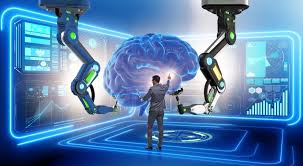Search Engine Optimization (SEO) has long been the cornerstone of digital visibility. But as the internet evolves, so do the rules of the game. What once revolved around keyword stuffing, backlinks, and metadata has transformed into something far more advanced and human-centric. In 2025, the secret to ranking isn’t brute force — it’s AI-powered intelligence.
The rise of Artificial Intelligence AI SEO has unlocked new levels of efficiency, precision, and personalization. SEO is no longer about just being seen — it’s about being relevant, timely, and valuable. AI tools now play a central role in shaping how content is created, optimized, and delivered to users around the world.
From Keywords to Context
In the early days, SEO success often boiled down to how many times you could fit a keyword into your blog post. But search engines — especially Google — have become significantly smarter. They now focus on semantic search, natural language processing, and user intent.
AI tools are designed to understand and replicate this behavior. Instead of suggesting “high-volume keywords” alone, platforms like Surfer SEO, Frase, and MarketMuse analyze searcher behavior, competitor content, and SERP structure to guide creators on what to write and how to structure it.
For instance, AI can help determine:
-
What questions is your audience asking
-
Which related terms give depth and authority to your content
-
How long should your article be to compete
-
What tone and format do users prefer
Real-Time Optimization: A Writer’s Best Friend
Modern AI tools now operate inside your writing environment. That means as you write, you’re getting real-time suggestions on:
-
Readability and grammar
-
Ideal keyword density
-
Structure improvements
-
Suggestions for subheadings
-
Internal/external linking opportunities
This functionality doesn’t just help with SEO — it drastically reduces editing time and enhances user engagement.
For example, tools like Jasper, Scalenut, and NeuronWriter offer integrated writing assistants that highlight weak areas while you’re working, helping you optimize content on the go.
Predictive Content: Write What’s Next, Not What Was
AI doesn’t just analyze what’s working now — it also predicts what will trend shortly. Platforms like MarketMuse use predictive algorithms to analyze emerging topics, giving marketers a head start on what to publish before it becomes saturated.
This predictive ability means:
-
You can write content that gets traction early
-
Stay ahead of competitors
-
Build topical authority in your niche
-
Capitalize on search intent changes before they peak
This approach aligns with the increasing importance of EEAT (Experience, Expertise, Authoritativeness, Trustworthiness) — Google’s favored metric for ranking high-quality content in 2025.
Personalization and Human-Like Content
One of AI’s biggest breakthroughs is its ability to generate and recommend personalized content. SEO is no longer one-size-fits-all. Today, AI allows businesses to:
-
Deliver region-specific versions of content
-
Adjust tone and reading level based on audience demographics
-
Personalize product descriptions or CTAs depending on visitor behavior
This is a major leap forward for B2B and e-commerce websites, where dynamic SEO content improves not just ranking, but conversions.
Must-Have AI SEO Tools in 2025
Let’s take a quick look at the most impactful tools helping content creators and SEO experts today:
-
Surfer SEO – Provides on-page SEO recommendations based on SERP analysis. Perfect for blog posts, product pages, and landing pages.
-
Frase – Helps you research, outline, and write content based on user questions and top-ranking pages.
-
Jasper – an AI writing assistant that integrates SEO tools and can auto-generate content, intros, meta descriptions, and more.
-
NeuronWriter – Focuses on NLP optimization and semantic-rich content creation.
-
MarketMuse – Advanced tool for content planning, opportunity analysis, and predictive topic discovery.
-
Scalenut – A full-suite platform offering AI writing, SEO scoring, and content clustering.
Each of these tools enhances specific parts of the content lifecycle — from ideation to publication.
The AI SEO Workflow of the Future
In 2025, the most successful content creators and businesses follow a streamlined, AI-supported workflow:
-
Topic Discovery – Use AI to identify trending and untapped topics.
-
Competitor Analysis – Let tools break down what’s ranking and why.
-
Content Planning – Build briefs and outlines with semantically relevant terms.
-
Content Creation – Write or generate content with AI-powered guidance.
-
Real-Time Optimization – Edit with AI feedback before publishing.
-
Performance Tracking – Use AI to analyze what’s working and adjust accordingly.
This workflow is faster, smarter, and more aligned with user needs.
The Human-AI SEO Partnership
While AI tools are powerful, they don’t replace human creativity. The best SEO strategies in 2025 are born from a human-AI partnership — where technology provides insights and structure, and humans deliver empathy, emotion, and experience.
Google still values authenticity and originality. The difference now is that AI helps you deliver that value more efficiently and strategically.
Final Thoughts: The New Era of Content Optimization
SEO is no longer about chasing algorithms. It’s about creating content that genuinely helps people — and using AI to do it better, faster, and more intelligently.
If you’re still stuck using outdated techniques, it’s time to embrace the future. AI isn’t here to take your job. It’s here to help you do your job better — with insights, speed, and precision that were once impossible.
